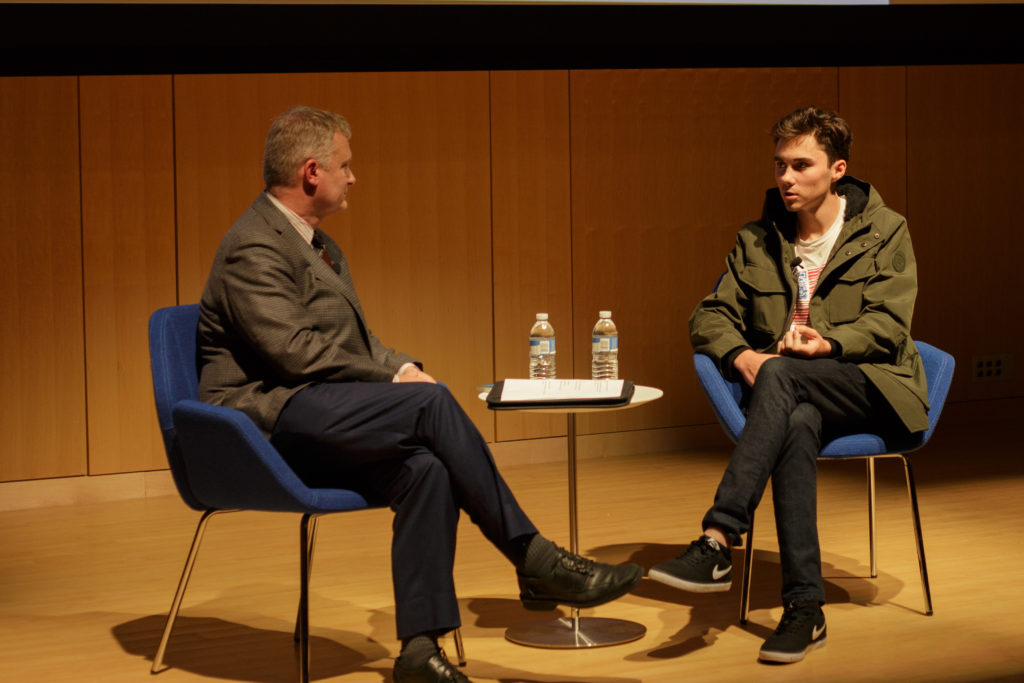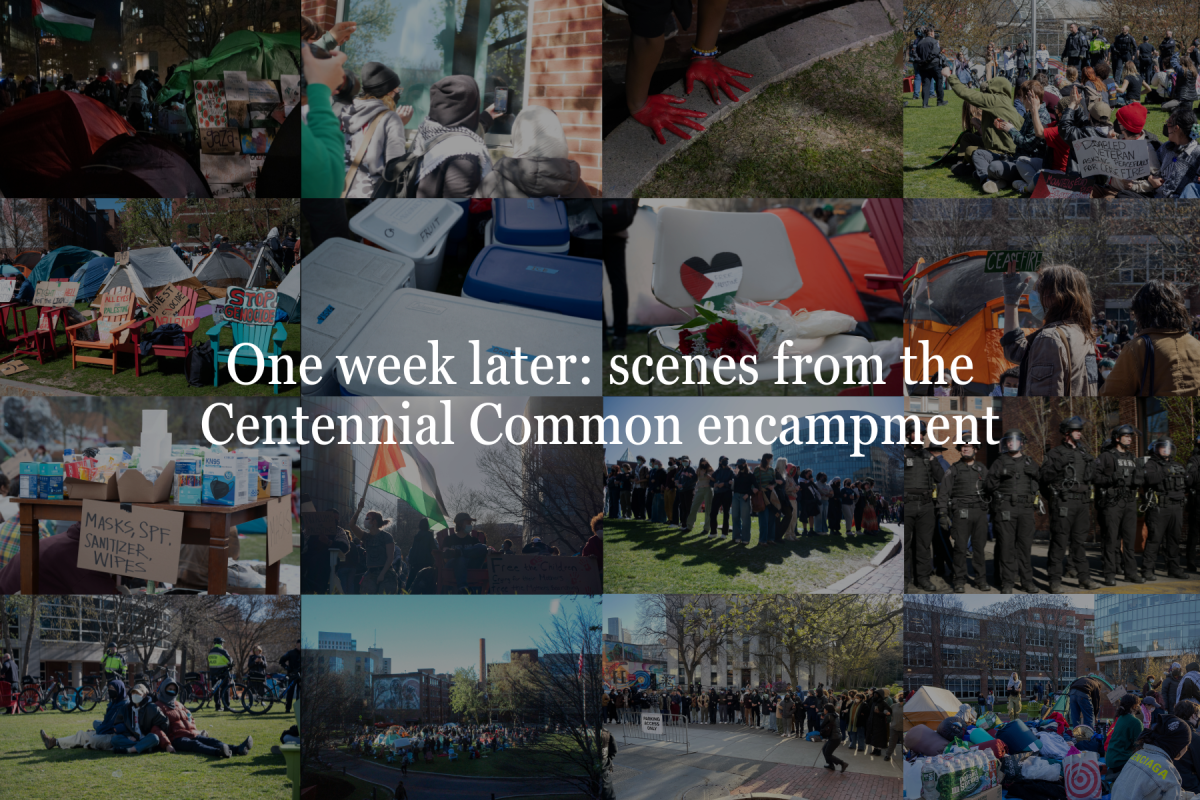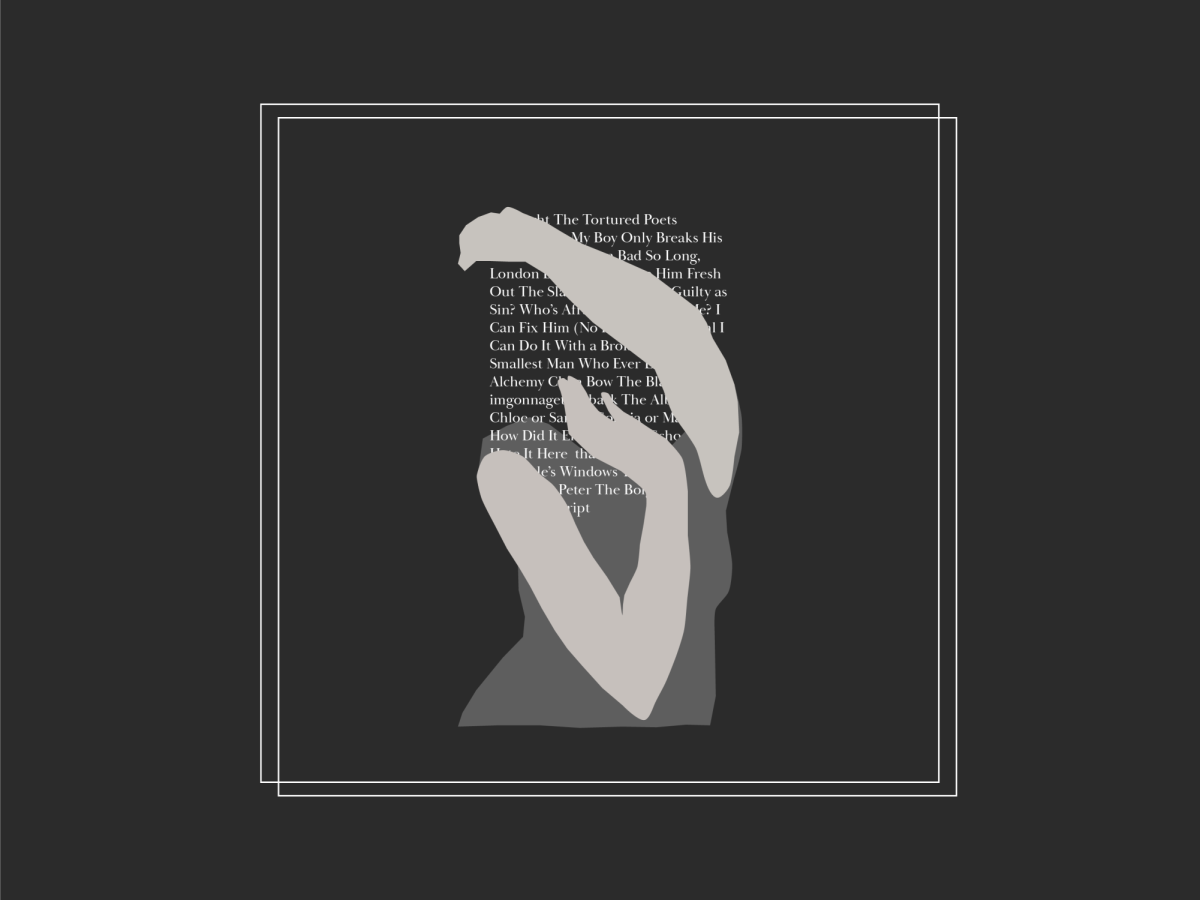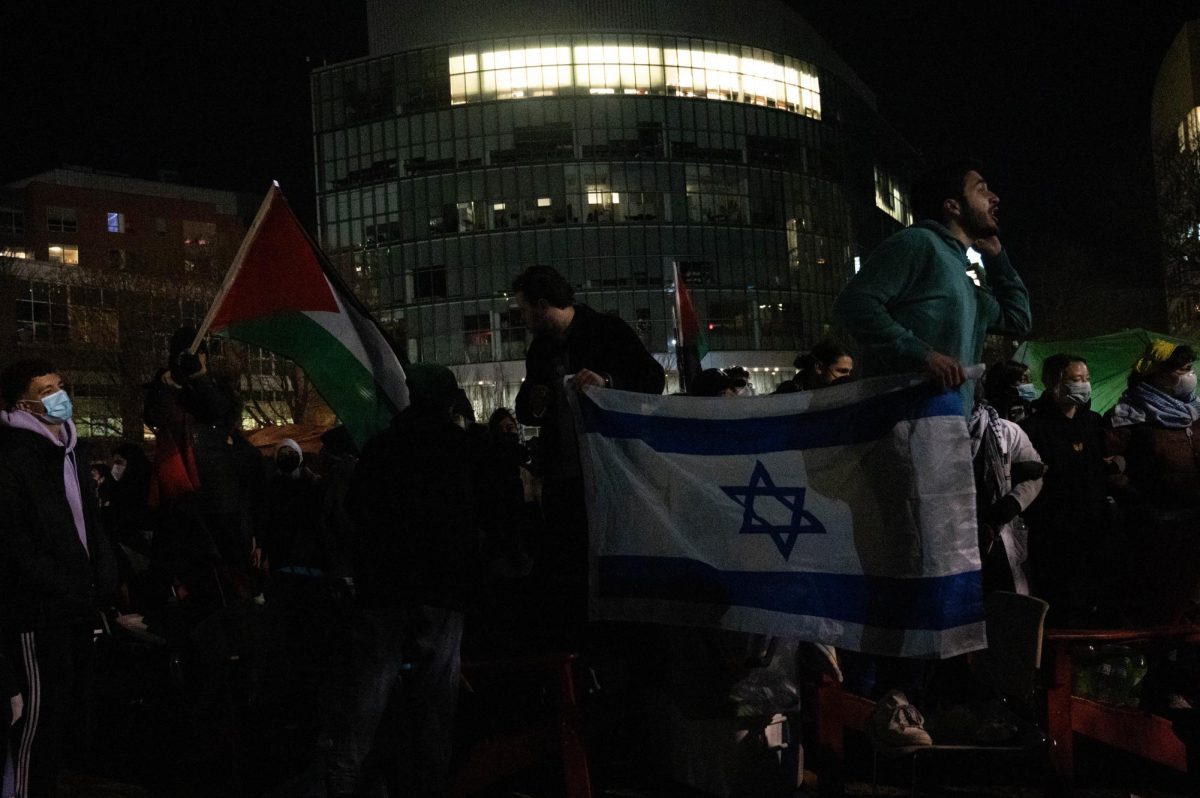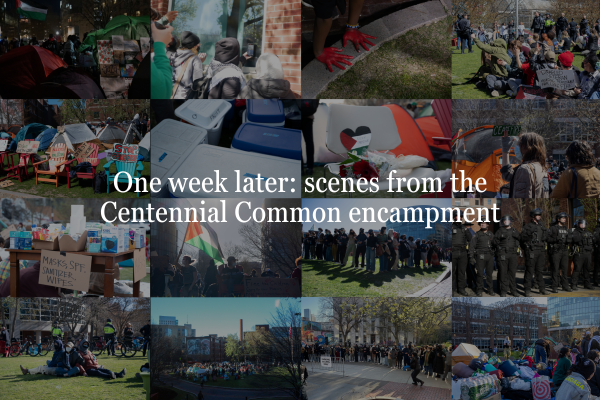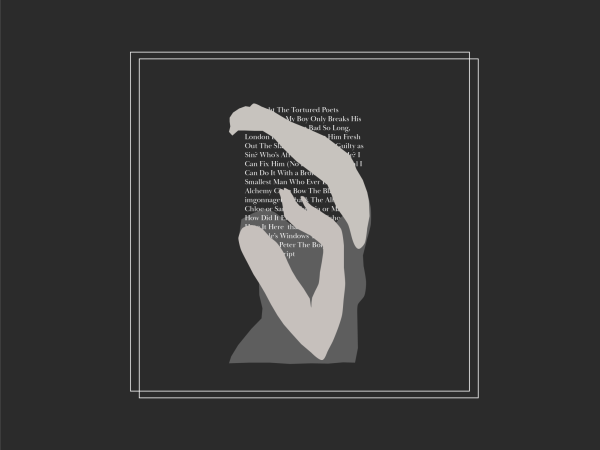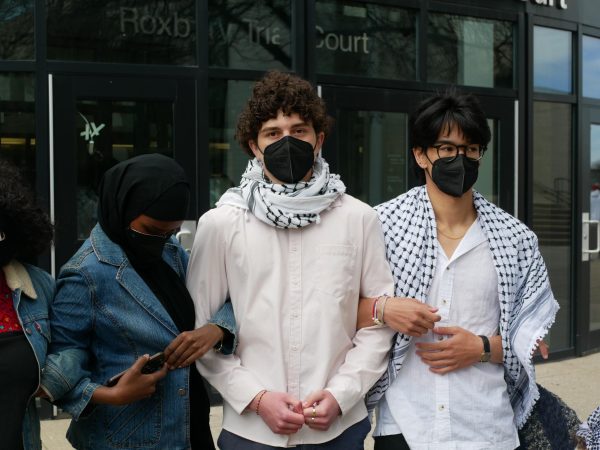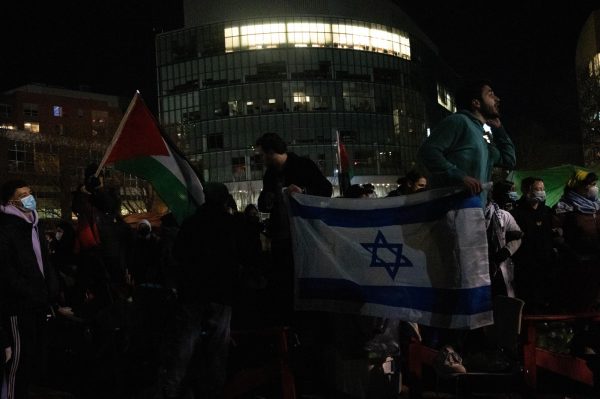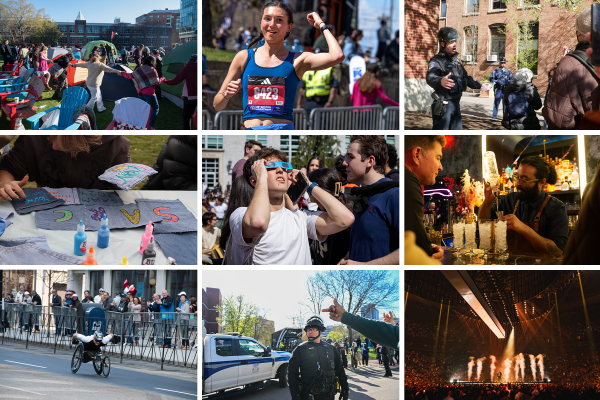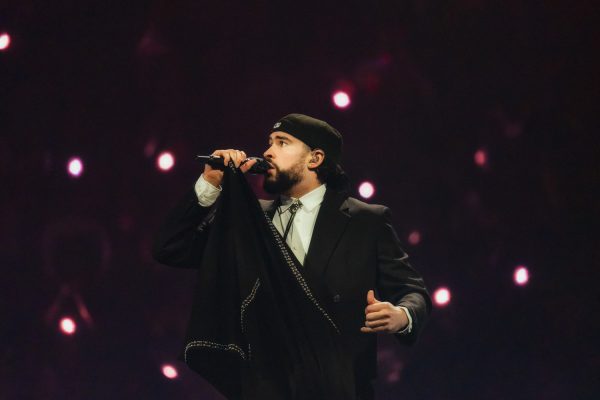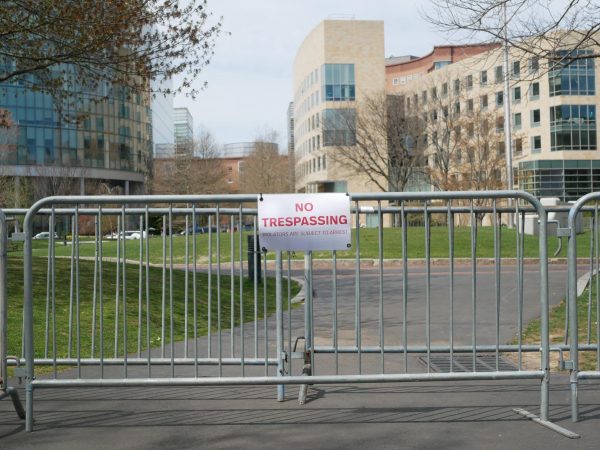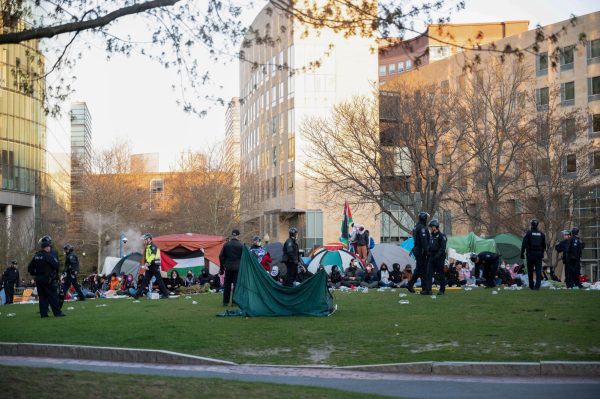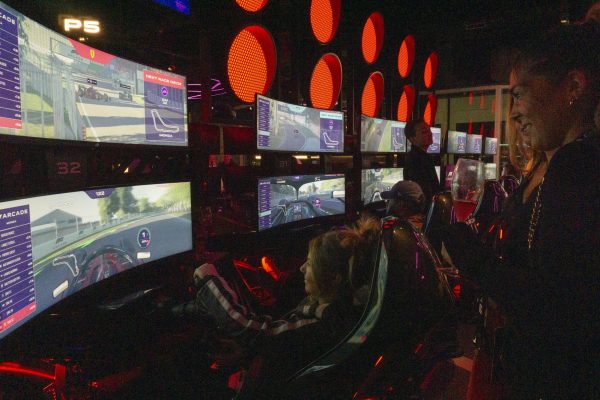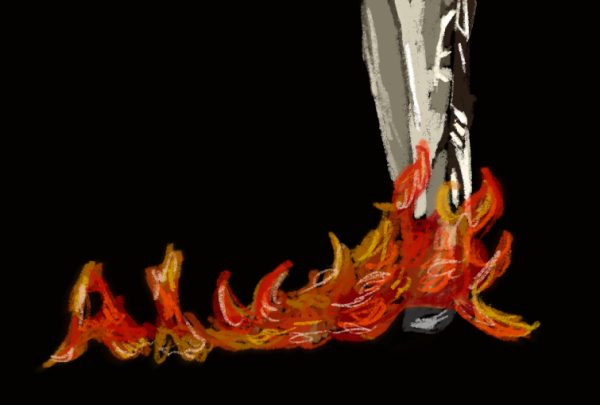David Hogg talks social activism, gun control at Boston Public Library
October 17, 2018
Gun control advocate, author and Marjory Stoneman Douglas High School alum David Hogg spoke with Boston Public Library president David Leonard about gun control and social activism at an open forum discussion held at the library Tuesday.
Hogg took a nationwide tour of the country this year in the aftermath of the mass shooting in Parkland, Florida that left 17 of their classmates and faculty dead. He is trying to move past the tragedy that forever changed his life on Feb. 14, focusing instead on the need to address a problem he said should never have existed in the first place.
“I couldn’t stand to be around my sister knowing that as her big brother, for the first time in my life, there was nothing I could do to stop her from crying,” Hogg told Leonard about the empathy that inspired him to take action.
Hogg spoke with Leonard about how he believed things would be different in Parkland if laws such as Extreme Risk Protection Orders had been implemented, not only in the state of Florida, but nationwide.
An Extreme Risk Protection Order is an order from a judge that suspends an individual’s license to possess or carry firearms.
“Extreme Risk Protection Orders and red flag laws are laws that aren’t instituted at a federal level right now, and should be,” Hogg said. “Just as a case example with our school […] the shooter at our school had the FBI and law enforcement called on him 38 times, but our state didn’t have Extreme Risk Protection Orders, so they couldn’t have taken his guns away.”
He added that the way the red flag laws would have worked is that the shooter would show up in a universal system and his guns would be confiscated for a period of time during which he would be able to argue in court whether he was a danger to himself or others.
Florida’s state government enacted The Marjory Stoneman Douglas High School Public Safety Act, also known as “The Risk Protection Order Act,” on Mar. 9, detailing the requirements of what must be contained in a petition for a Risk Protection Order and resulting orders in Florida Statute 790.401. The law states that when an RPO is issued, the court “shall order the respondent to surrender to the local law enforcement agency all firearms and ammunition,” as well as the individual’s license to carry such firearms until the order is vacated, either due to the amount of time passed or if the suspect in question has met the required burden of proof to declare their mental stability.
Within 24 hours of the order’s issuance, a copy of the order is forwarded to the appropriate law enforcement agency, which then enters the order into the Florida Crime Information Center and National Crime Information Center. Once the order has been entered into these systems, all law enforcement agencies in the state are made aware of the order, which is “fully enforceable in any county in this state.”
Hogg also discussed the ways racial inequality and media bias play a role in determining which shootings get covered and which don’t. He offered words of encouragement to the crowd and those aspiring to accomplish the same goal he does, emphasizing the role that individual action plays in political change.
“I think what we have to recognize is that it’s not going to be any single individual that comes and saves us […] nobody cares about you except you; so we can change that by you voting and running for office to make that change for you and your friends,” Hogg said.
He told Leonard that when he thinks of the civil rights movement, “we don’t immediately think of political parties,” saying that “movements are bigger than political parties […] movements are about humanity and individuals coming together as a collective group to change something that should not be accepted anymore… and that’s what gives me hope.”
Sal Inglima, a Boston musician who attended the event, said he was concerned about the increase in shootings over recent years.
“I’ve just found it distressing, the amount of gun violence and mass shootings that have been happening more and more,” he said “I’m so impressed that someone like David would have the temerity to stand up and try to do something about it, I think it’s amazing.”
Ella Irmiter, a first-year history major at Northeastern University, said she came to the library talk because she’s followed the March for Our Lives movement since February and that she helped organize a walkout at her high school in solidarity with Parkland’s victims and in protest of political inaction.
“I think [Hogg’s message] is still just as important, but I think getting people to recognize the importance is difficult and I think that’s why it’s amazing that he’s still talking to people about it,” Irmiter said.
In an interview with The News, Hogg said his advice to young people who may want to play an active role in the March for Our Lives movement but aren’t of voting age is to educate their friends, and to get just five people to the polls to vote who may not be inclined to do so on their own.
“Get other people to vote,” Hogg said, “get your parents to vote.”


